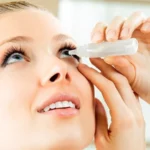Like dopamine, serotonin (ST) is also a neurotransmitter, it is a type of chemical that plays many important roles in the human body.
A neurotransmitter is a chemical substance, that chemical that transmits signals from one area of the brain to another area is called a neurotransmitter.
The nervous system uses it to send messages between nerve cells through electrochemical signals, which are sometimes called chemical messengers.
Our brain is made up of unique types of cells called neurons or nerve cells, which count around 100 billion.
As we know that dopamine is also responsible for pleasure and reward feelings, which is why is also known as the pleasure neurotransmitter.

How serotonin is made?
Contents
Serotonin begins with the essential amino acid tryptophan, which is required for normal growth for infants, maintaining body protein, muscle, and enzymes.
This amino acid enters our body through a diet that is commonly found in food like chocolate, oats, milk, yogurt, cottage cheese, red meat, eggs, fish, etc.
It is made in the brain, but 80 to 90% is mostly found in the digestive system, also in blood platelets, and all over the central nervous system (1).
If the body has a low level of tryptophan, then this leads to a serotonin deficiency level, and this causes mood disorders including depression, sleep trouble, anxiety, etc.
What Does Serotonin Do?
It plays an important role in the human body it involves the regulation of various activities (e.g. behavior, mood, and memory) (2).
Enough levels of ST in the body also help in:
- Preventing depression
- Help in control anxiety
- Heal wounds
- Maintain bone health
- Healthy sexual life
- Learning and memory
- Regulate temperature
NOTE: Let’s see how ST works in different functions in our body:
Serotonin function also affects cardiovascular health, muscles, and the endocrine system (it is a unique network of glands and organs).
Blood clotting: It helps the body to heal faster.
Sleep: control the sleep cycle by stimulating the brain area that is responsible for sleep-wake behavior.
Sexual function: Enough levels in the body promote healthy sexual life, and too much level leads to a decrease in libido.
Regulate mood: This is very important because ST low and too high level leads to depression, anxiety, and trouble sleeping.
Nausea: Helps the body expel food quicker than normal.
Promote milk production: Research evidence showed that serotonin can regulate milk production in the breast.
However, another study saw that serotonin is a chemical responsible for obstacles in milk production and secretion in human mammary glands.
Too much and Too low ST Effect on Body
With an adequate level of (ST) in the brain, we will experience feeling positive, happy, feel good, and confident, which also boosts our dopamine level.
Low ST Level
If a person doesn’t have enough Serotonin levels in the brain, that leads to feeling negative, depressed, sleepless, and irritable, these can all be signs that the serotonin level is low.
This effect is not only seen mentally but also shown physically including:
- Difficulty in sleeping
- Energy disbalance
- Digestion issue
- Increase sugar level
- Interact with liver function
- Effect immune system negatively
Its deficiency is also associated with many physical conditions which include:
The study showed that long-term serotonin deficiency in adults may affect the stability of other monoamine systems like (dopamine, adrenaline, etc)
How to treat serotonin deficiency?
Many studies believe that increasing the low level of serotonin is not only a treatment for depression but also for susceptibility to depression and suicide (4).
There are many ways to treat ST deficiency which include:
Certain medicines such as antidepressant medications are the most recommended treatment for serotonin deficiency including anxiety and depression.
The natural way is another most recommended way to treat ST deficiency which includes:
- Bright light therapy: This treatment is very effective in seasonal depression, but studies say that it is an effective treatment for nonseasonal depression (10)
- Exercises: It clearly demonstrates that exercise has an antidepressant way, that also boosts overall health including walking, running, meditation, etc
- Diet: Studies believe that certain foods such as bananas, probiotics, etc can really increase serotonin levels (2)
Too much ST
As we know that ST is made naturally in the body, but when a person takes illegal drugs then builds up too high a serotonin level known as serotonin syndrome.
Serotonin syndrome occurs when a person’s ST level reaches a high level caused by taking drugs and combined medications that contain serotonin.
his condition can become fatal if you stop these drugs.
Too much ST can also lead to various health issues which range can be mild to severe including:
- Diarrhea
- Shivering
- Fever
- Vomiting
- High blood pressure
- Seizures
- Muscle rigidity
- irregular heartbeat
- Even death
Is Really Diet influences serotonin level
Diet plays a vital role in raising brain ST levels.
Research conducted on the animal has shown that tryptophan, which increases brain ST in the human brain is an effective treatment for mild to moderate depression (2).
High protein food such as bananas improve your mood because it contains serotonin, which does not cross the blood-brain barrier.
Kerem and colleagues’ studies showed tryptophan content in both chickpeas and domestic chickpeas (4).
Multiple studies have shown that corn increases both niacin and tryptophan, and serotonin, and also prevent pellagra (6) (7).
Cross-national studies reported that corn consumption is negatively associated with dietary tryptophan and suicide rates (8).
Any link between Serotonin and depression
Depression is a most common mental illness that primarily negatively affects “how you feel” which leads to even suicide.
Low levels of ST in the brain are associated with depressive disorder and treatment for depression aim to increase these level (11)
There are many treatments for depression including medication, therapy, and certain exercises, but the aim of treatment is to increase ST levels.
The most commonly prescribed medication, called SSRI (selective serotonin reuptake inhibitors) acts by blocking serotonin reuptake by the transmitting neurons.
Unfortunately, ST is involved in a wide range of brain functions, but the side effect remains significant and may lead to dangerous conditions known as serotonin syndrome.
Research believes that a lack of receptors sites able to receive the serotonin, which leads to a shortage of tryptophan (a chemical where ST is made).
If any disturbance in these systems, researchers believe that it can lead to depression, anxiety, panic, and even physical illness (6)
There is no equipment available that measures what is ST, and depression levels.
However, the blood level of serotonin is measurable and has been shown to be lower in people who suffer from depression.
Apart from this, the researcher has not been able to find out whether the decline of ST causes depression or depression causes a drop in serotonin levels.
Serotonin and mental health
Research believes that ST is one of the most needed neurotransmitters that influence mental health (9).
Anxiety: Studies indicate that serotonin activity may associate with anxiety disorder, however, some studies have shown no link (9) (10).
May lead to addiction: It believes that serotonergic dysfunction may be associated with addictive behaviors (10) (11).
Low interaction: Studies suggest that a lower level of serotonin in the brain may be associated with poor social interaction (9) (10).
Schizophrenia: It has been shown that the serotonergic system may interact with the dopaminergic system in ways that can be allied with schizophrenia (10) (11).
Other disorders such as Autism, and Attention Deficit Hyperactivity Disorder (ADHD)
BOTTOM LINE
The lower level of serotonin can affect your mood, and lead to anxiety, depression, and other mood disorders (4).
Serotonin is an inhibitory neurotransmitter, unlike dopamine, it does not have a stimulatory effect on the brain.
Studies suggested that serotonin is essential to obtain and maintain behavioral sleep’s permissive role in sleep.




